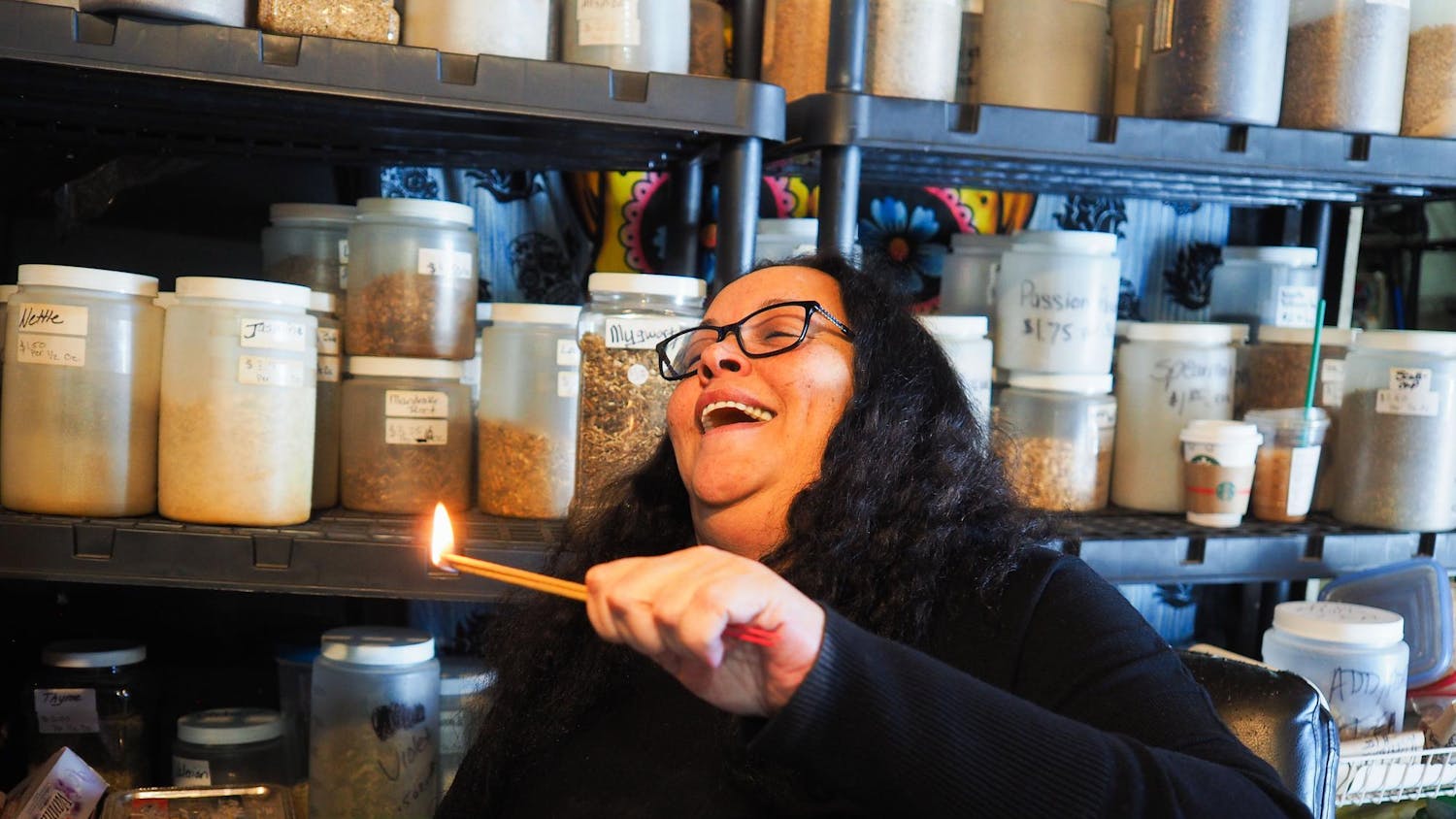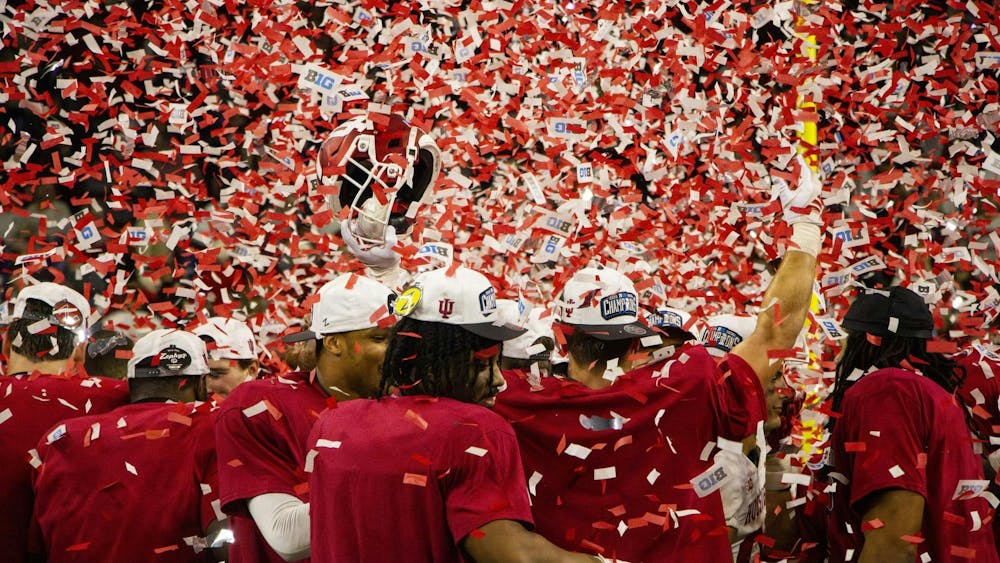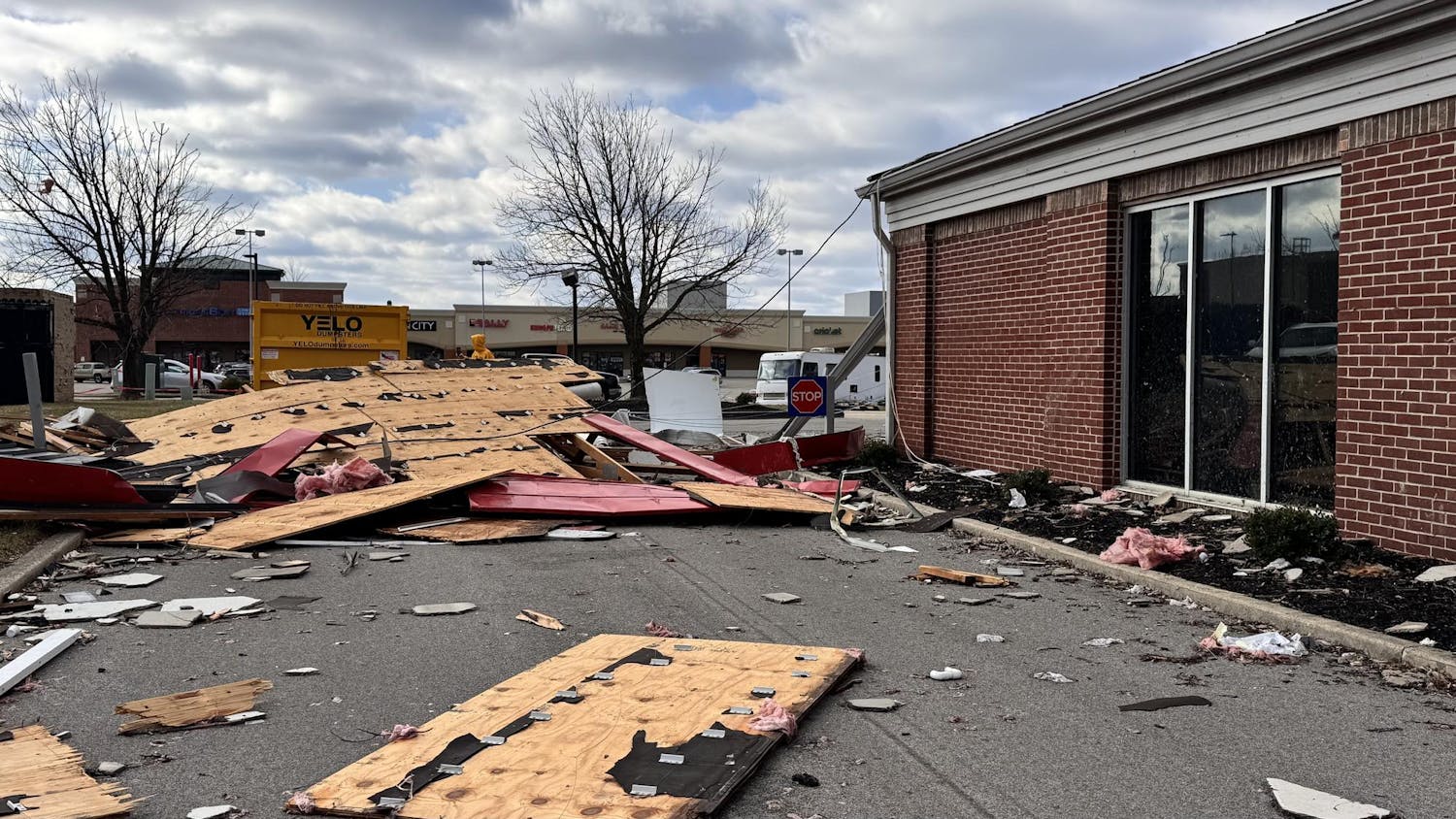When she was going through treatment in high school, now IU junior Lara Kish kept her tumor a secret. The tumor on her optic nerve required treatment that caused the blind spot in her eyes to grow and her hair to fall out. Lara wanted to hide it, and she didn’t talk about it.
But her first summer at Camp Kesem, she stood up in front of everyone and talked about what people told her was her “invisible disability.” She acknowledged that she can’t play sports because once when she did, she was hit in the head by a softball she couldn’t see. As she spoke, her story turned into raw emotion.
“It was the first time that I talked openly about my tumor,” Lara says. “I never cried like that about it before.”
Camp had given her the strength to speak up. The tumor was a part of her life.
It’s a tradition that on the last day of camp, there is an “empowerment ceremony.” It’s the one time that campers and counselors are free to share thoughts and feelings with the rest of the group. All the campers there have at least one thing in common – they each have a parent with cancer.
To start, four counselors share stories. That summer, in 2010, Lara was one of those four. She says she was nervous at first because her tumor wasn’t cancerous. She hadn’t been impacted by cancer like the campers were. But it didn’t matter. The emotion came out just the same. And the understanding and support of the Camp Kesem family was there.
***
When Bloomington resident Michelle Combs was first diagnosed with breast cancer in 2005, it was two weeks after her daughter Abby’s seventh birthday. Michelle also had a 2-year-old daughter named Savannah.
“When you’re first diagnosed, your first worry is everyone else, especially your kids,” Michelle says.
Then she learned about Camp Kesem, a national organization with camps run by college students across the country. The camp run by IU students has grown to be one of the largest nationwide with nearly 100 campers expected for summer 2012 at YMCA Camp Carson in Princeton, Ind.
All the money comes for fundraising by the IU students so campers don’t have to pay. It’s one week at the end of the summer that campers don’t have to think about cancer and be kids again.
Michelle’s daughter Abby, 14, has gone to camp every year since 2005 and her other daughter Savannah, 9, has been a camper since she was 5 years old. This is an opportunity for the sisters to be with other kids dealing with similar issues.
“There’s no group at school for kids with parents with cancer.”
During the week of camp, Lara and the other counselors try to make everything as carefree and fun as possible. They let the campers know that it’s okay to play games even though mom or dad is sick.
The week is full of activities. The youngest campers love to play Little Sally Walker. The 10- and 11-year-old girls find their first camp crushes. The middle school age campers think they’re too cool for activities – except for going to the lake and pulling pranks. And everyone loves the messy olympics: a chance to be covered in whipped cream, ketchup and chocolate sauce.
Sometimes cancer comes up in the nightly cabin chats. Sometimes it doesn’t. But the similar worries and experiences are what bring the campers together to form friendships with people they would have never met without camp.
***
Campers have different dress up days. One day it might be cowboy day while the following day, it’s backwards day. And no matter the theme, Lara tries to match her socks to the day.
On jungle day, she wore brightly colored animal print knee high socks. She’s always loved to collect fun, bright socks so the campers call her “Socks.”
Everyone at camp has a camp name that they choose. And if anyone calls someone by his or her real name, that person has to hug a tree.
For Michelle’s daughters, Abby was easily “Dory” because “Finding Nemo” was popular, but Savannah had more trouble deciding on a name. She settled on “Flutter,” which Michelle says is a perfect fit because Savannah is a constant bubble of energy.
Sophomore Michael Dempsey said he was at an IU football game raising money for Camp Kesem when he heard his camp name – “Shammy” –shouted at him. It was “Crash,” one of the campers from his cabin. “Crash’s” family had tickets to the football games and always tailgated in the same area. So after that, Michael stopped to see “Crash” every time he was at a game.
Counselors only know as much about the campers’ home life as the campers are willing to share. Some talk about cancer at the nightly cabin chats, but most of the serious talk happens on the last day at the empowerment ceremony.
After the counselors start the conversation, anyone is free to share. Some break down. Some hold hands with another camper as they talk or hand each other tissues. Some are 6 years old. Others are 22.
“When people think of cancer, your immediate thought is the patient,” Lara says. “These are the secondary victims.”
***
Michelle was in remission for six years when in February 2011, she was told her cancer was back. And as the cancer spread to her lungs, she relied on her daughters more to help with cleaning and helping around the house.
Michelle says she’s easily winded and spends a lot of time on the couch where her daughters bring her things like her medications and water and their homework to look over.
She said she was expecting a difference in the girls, especially Abby who was older and understood that a second diagnosis was more serious, but Michelle didn’t get a different reaction from either of her daughters.
However, Michelle says she thinks the empowerment ceremony might have been a little different for the girls last summer. And while she’s asked about cabin chats, Michelle has never really gotten much as to what the girls talk about.
But she’s happy with that. Camp is sacred time and space for them and Michelle is thankful that her daughters are a part of this experience. The counselors are there just to listen and shower the girls with attention. The girls can be selfish and only think of themselves, while at home, life can be business as usual.
“I’ve said so many times you have to look for the hidden blessings,” Michelle says. “Camp Kesem is one of those blessings.”





